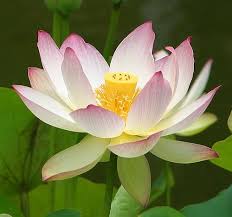Ayurveda deals with the science of life (Ayur means life and veda standing for science). Original from India over 5000 years ago, Ayurveda consists of three main elements – Kapha, Pitta and Vata. Each Dosha governs an essential structure of the human body. Kapha crowns the entire physical volume of the body. Pitta deals with the chemical processes occurring internally and Vata manages the external movements and activities. Ayurveda aims to create a balance between these three Doshas. The results are brilliant: good health, happiness, glowing complexions, improved strength and enhanced body defences.
Whilst Kapha crowns the entire physical volume of the body, Pitta deals with the chemical processes occurring internally and Vata manages the external movement and activities. Working collectively, all three doshas aim to achieve equilibrium, equalizing to good health, happiness, glowing complexions, physical strength, and immunity. Ayurvedic oils and extracts aspire the workings of the doshas, with oils tailored to activate and boost the energies of each dosha.
Ayrvedic Oil Tri-Dosha Set is presented in a handmade ecological juta bag with 3 X 50ml bottles – Kapha, Pitta and Vata Dosha oils. Design and color bag may do vary.
Learn more about:
Bloom Ayurvedic - Massage Oil - Kapha
http://bloomapothecary.blogspot.com/2009/08/bloom-ayurvedic-massage-oil-kapha.html
Bloom Ayurvedic - Massage Oil - Pitta
http://bloomapothecary.blogspot.com/2009/08/bloom-ayurvedic-massage-oil-pitta.html
Bloom Ayurvedic - Massage Oil - Vata
http://bloomapothecary.blogspot.com/2009/08/bloom-ayurvedic-massage-oil-vata.html
Ayurveda - Science of Life
http://bloomapothecary.blogspot.com/2009/08/ayurveda-science-of-life.html
********
Vata-type people are generally thin and find it hard to gain weight. Because of this, Vatas have very little energy reserve and can tire easily and get themselves out of balance. Vatas need to get sufficient rest and not overdo things, stay warm, and keep a regular lifestyle routine.
The Vata dosha controls all movement in the body, including breathing, digestion, and nerve impulses from the brain. When Vata is out of balance, anxiety and other nervous disorders may be present. Digestive problems, constipation, cramps, and even premenstrual pain usually are attributed to a Vata imbalance.
The most important thing to know about Vata is that it leads the other doshas. Vata usually goes out of balance first, which causes the early stages of disease. More than half of all illnesses are Vata disorders. Balancing Vata is important for everyone, because when Vata is in balance, Pitta and Kapha are generally in balance as well.
-------------
Pitta-type people are generally of medium size and well proportioned. They have a medium amount of physical energy and stamina. They also tend to be intelligent and have a sharp wit and a good ability to concentrate. Fire is a characteristic of Pitta, whether it shows up as fiery red hair or a short temper. Since Pittas' body temperature is generally warm, Pitta types can go out of balance with overexposure to the sun. Their eyes are sensitive to light. They are ambitious by nature but also can be demanding and abrasive.
Pitta types are known for their strong digestion but should be careful not to abuse it. Their heat makes them particularly thirsty, and they should take caution not to douse their agni, or digestive fire, with too much liquid during meals. Pitta dosha leads us to crave moderation and purity. We rely on Pitta to regulate our intake of food, water, and air. Any toxins, such as alcohol or tobacco, show up as a Pitta imbalance. Toxic emotions such as jealousy, intolerance, and hatred also should be avoided to keep Pitta in balance for optimum health.
-----------
Kapha-type people tend to have sturdy, heavy frames, providing a good reserve of physical strength and stamina. This strength gives Kaphas a natural resistance to disease and a generally positive outlook about life. The Kapha dosha is slow, and Kapha types tend to be slow eaters with slow digestion. They also speak slowly. They are calm and affectionate but, when out of balance, can become stubborn and lazy. They learn slowly, with a methodical approach, but also retain information well with a good understanding of it.
Kapha dosha controls the moist tissues of the body, so a Kapha imbalance may show up as a cold, allergies, or asthma. This is worse in Kapha season, March through June. Cold and wet weather aggravates Kapha. They should not dwell in the past or resist change. They need lots of exercise and need to be careful not to overeat. Kaphas need stimulation to bring out their vitality. Kapha dosha teaches us steadiness and a sense of well-being.

